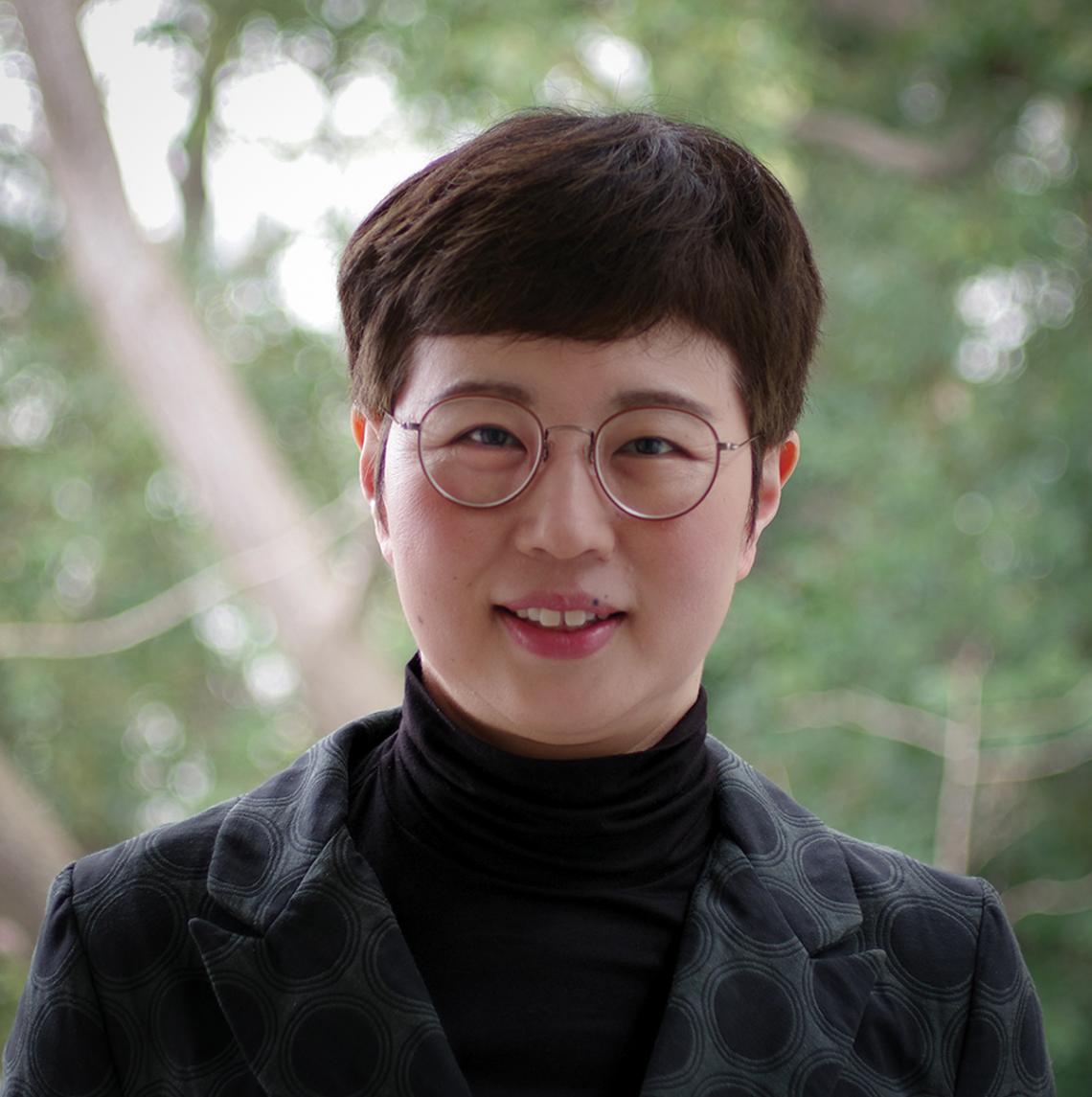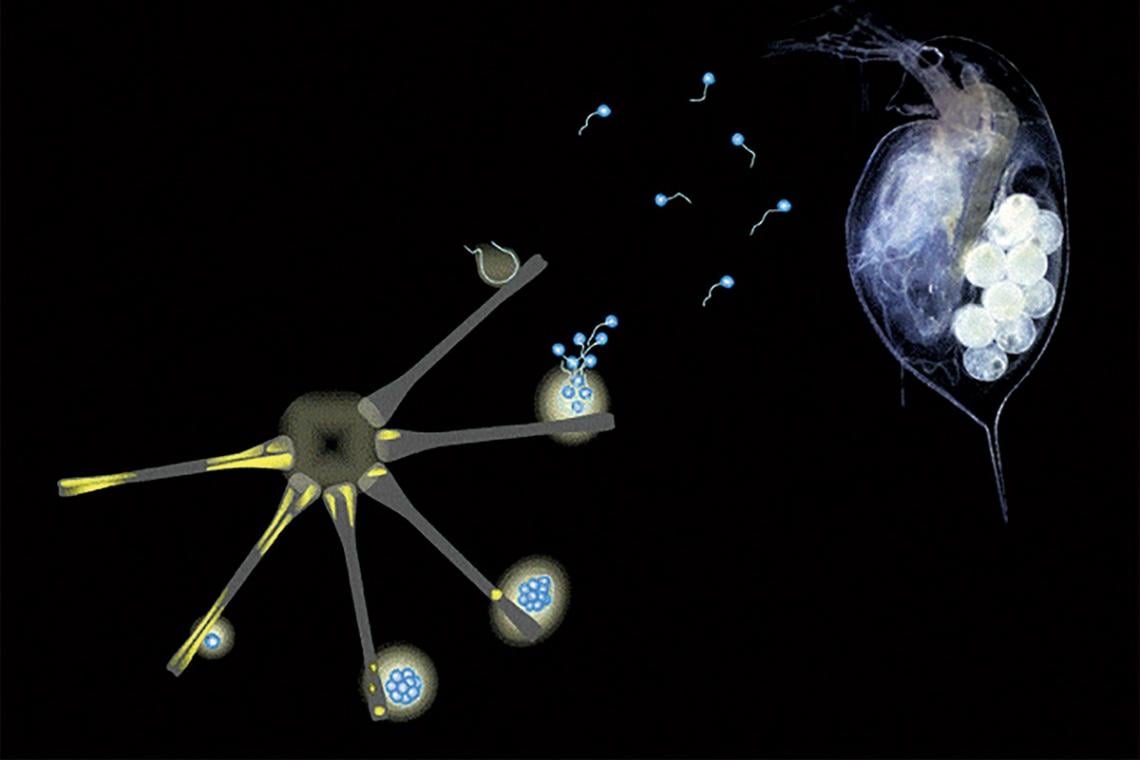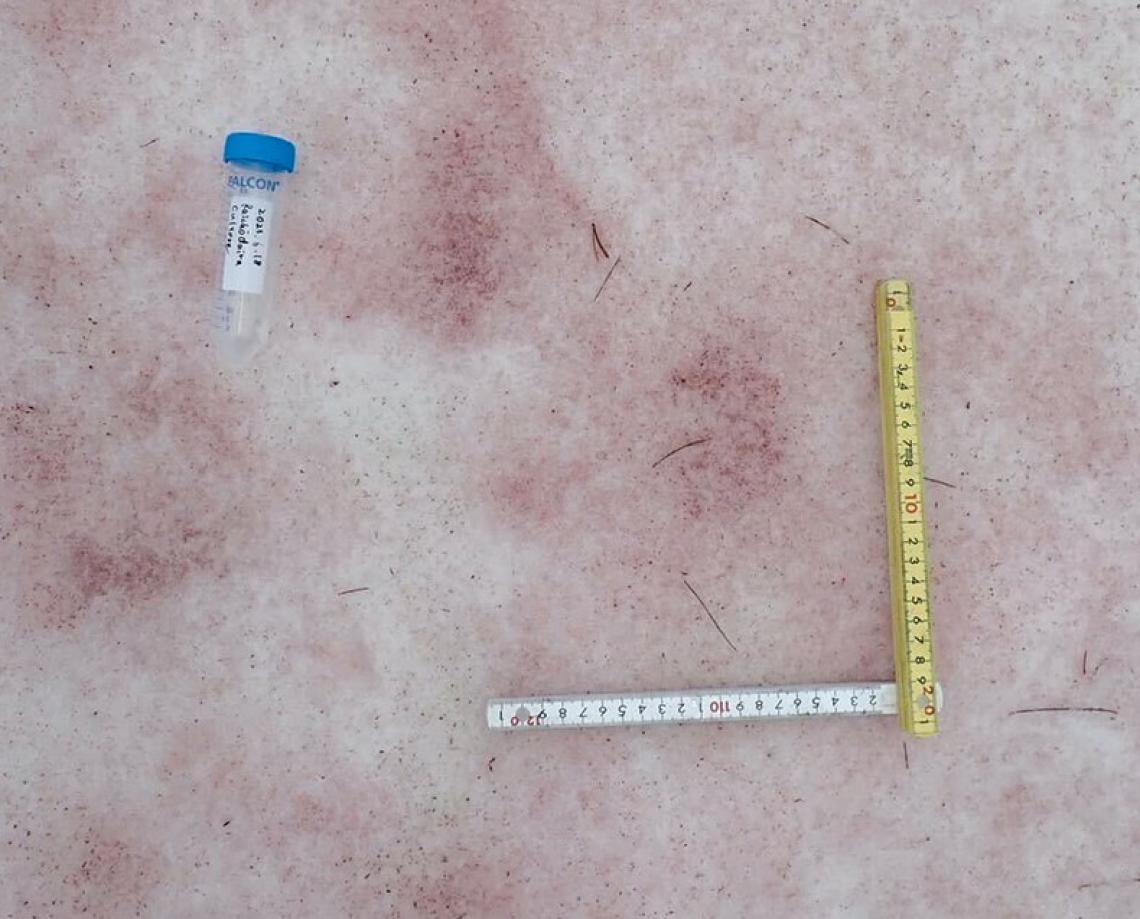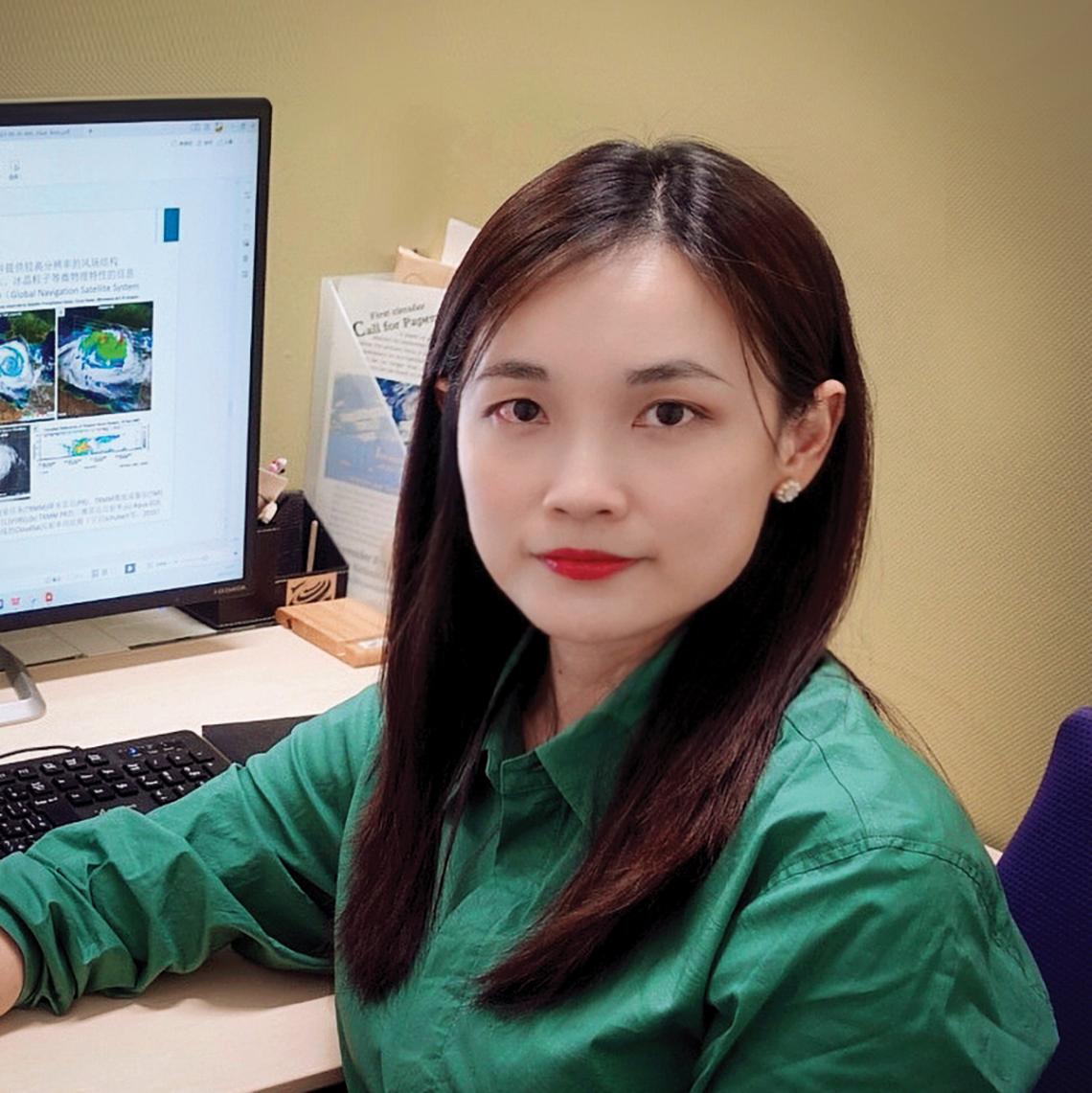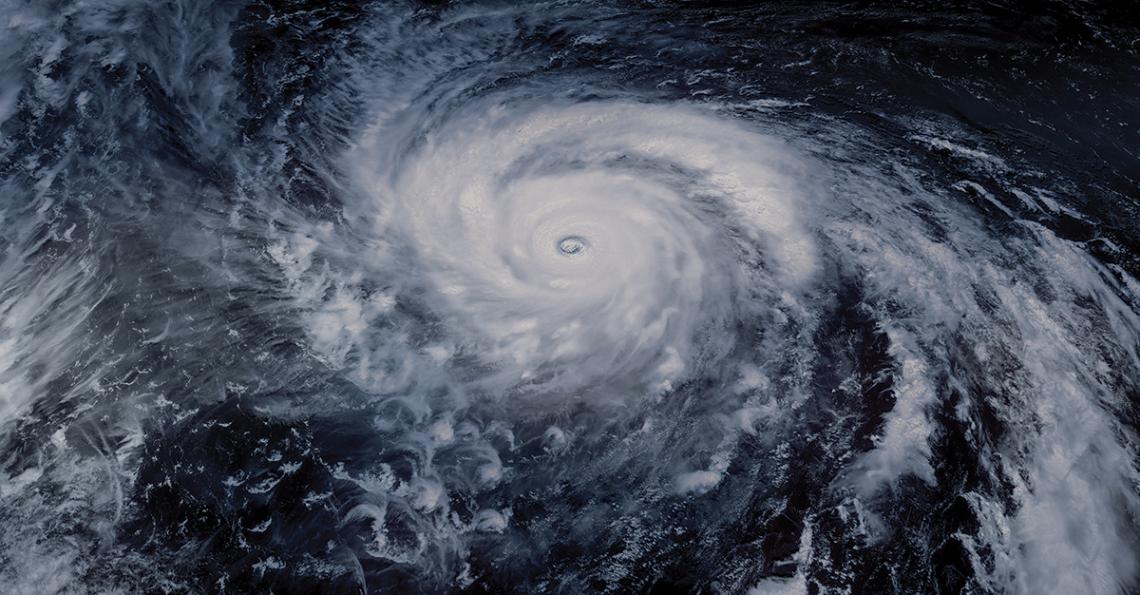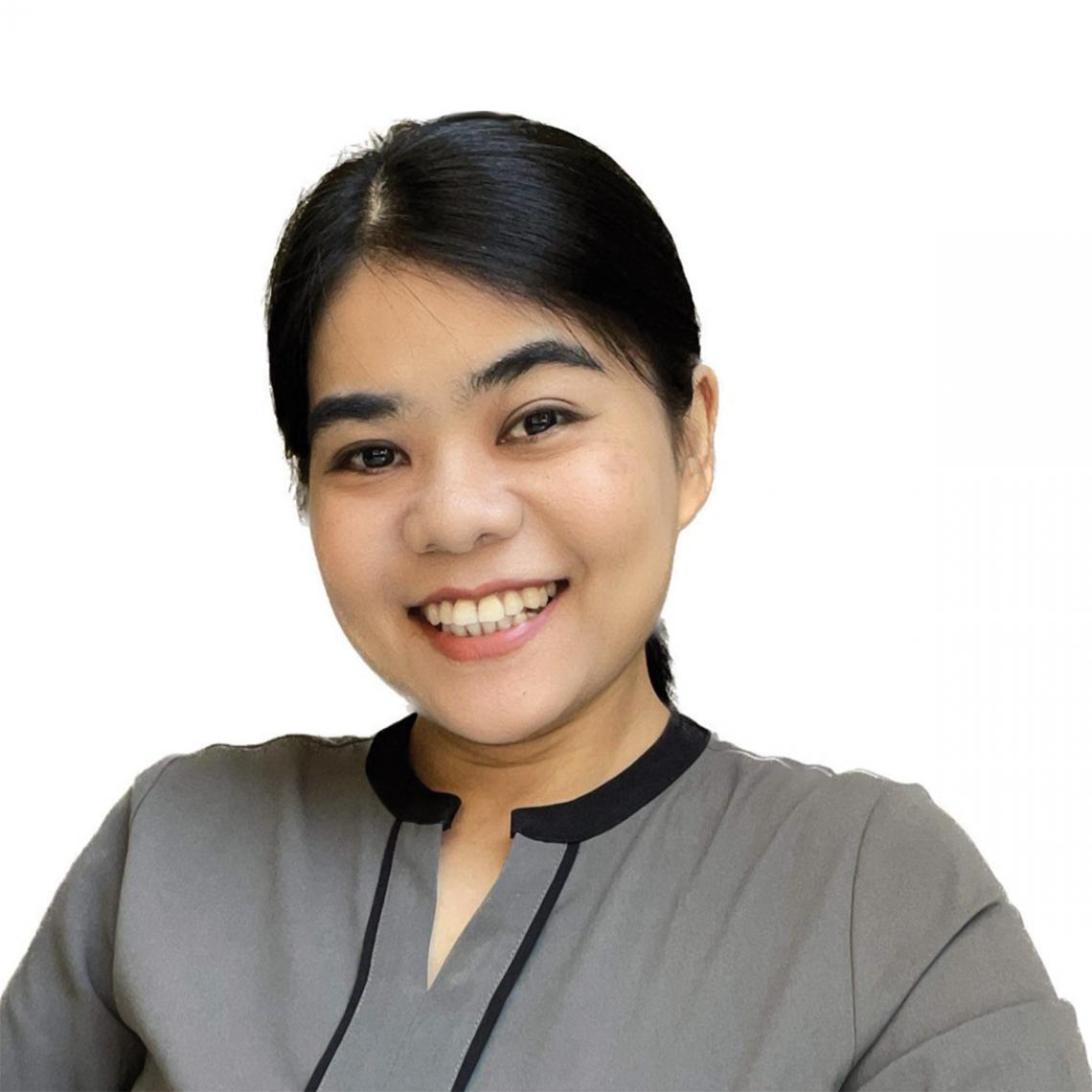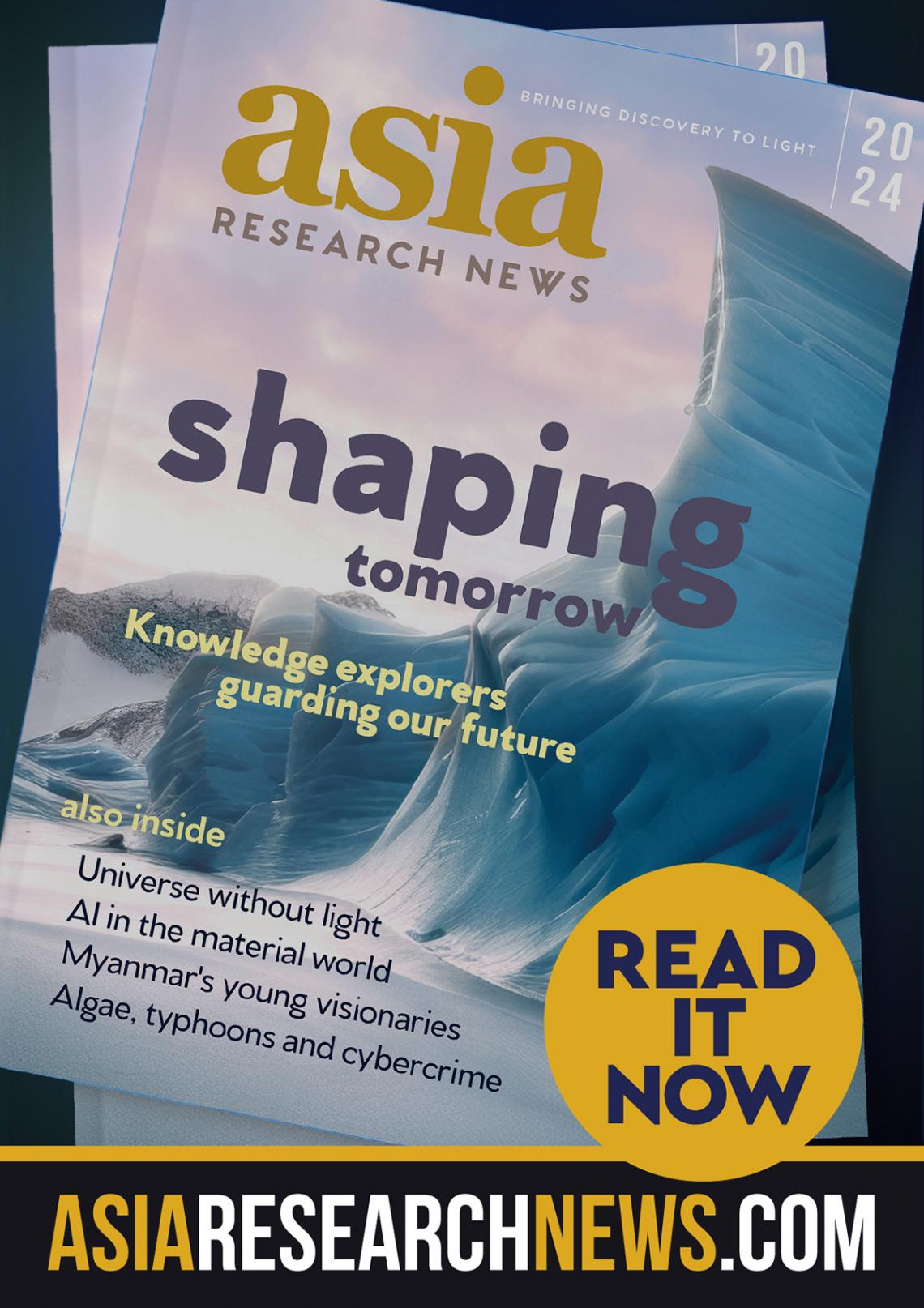This story is featured in the Asia Research News 2024 magazine. If you would like to receive regular research news, join our growing community.
Get the news in your inbox
As part of its commitment towards embracing global perspectives and addressing societal needs, Yokohama National University (YNU) has established two dynamic research institutes: the Institute of Advanced Sciences (IAS) and the Institute for Multidisciplinary Sciences (IMS). Having built a strong network of local and global researchers across diverse fields, YNU has positioned a talented group of both established and up-and-coming researchers to shape the course of societal advancement. Their journeys at the IMS and IAS offer a unique perspective on the collaborative and innovative spirit encouraged at these institutes.
Maiko Kagami: Let it snow
One of these brilliant minds is Maiko Kagami, a Principal Investigator at the IMS whose work focuses on phytoplankton, the tiny aquatic organisms that serve as the base of several food chains.
“In the past, it was thought that large phytoplankton (algae) did not enter the food chain in lakes,” she says. “During my post-doc in the Netherlands, I found that parasitic fungi, known as chytrids, can decompose large plankton making them smaller and more nutritious, allowing small plankton to consume them, creating a cycle. I coined the term Mycoloop for this cycle, a combination of the word ‘mycology’ and my name ‘Maiko’.”
Kagami’s interest in microorganisms began when she was a child after watching the movie Nausicaa, a post-apocalyptic anime fantasy about the quest for environmental harmony amidst war and ecological threats. “I was amazed to learn that microorganisms can purify soil and water,” she says. “At the time, Japan was highly polluted and in Tokyo, where I lived, the water was very dirty. I thought it would be great if we could do something about this using the power of microorganisms.”
In the cycle known as "Mycoloop", single-cell algae diatoms (left) are decomposed by parasitic fungi chytrids, which are then eaten by small crustaceans daphnia (upper right).
Kagami is currently researching chytrids that parasitise algae found in snow and glaciers.
Snow algae give a green or red colour to snow and glaciers, which cause the accelerating of global warming. “Normally, sunlight reflects off white snow or glaciers, providing a cooling effect. But snow algae reduce the snows reflection ability and hinder this cooling effect,” she explains. “We are investigating chytrids’ ability to effectively kill snow algae, which are increasing due to global warming. If chytrids can kill them, it may be possible to help slow down global warming.”
Snow algae give a red or green colour to snow and glaciers, accelerating global warming.
Additionally, Kagami is investigating marine snow — a phenomenon in which plankton and other organic materials sink to the ocean floor like snow. Kagami is looking to find out if chytrids could cause more marine snow to form, which can increase carbon storage in the ocean as plankton absorbs carbon dioxide and takes it down to the ocean floor as marine snow.
“We are working on real snow, marine snow, and lake snow, so we’re like snowmen!” exclaims Kagami.
“The chytrid is not often covered by the media, but it has great potential,” she adds. “Microorganisms are invisible but have amazing powers. I want to bring this to the forefront and connect it to further applications of basic research.”
Further information
Prof Maiko Kagami
[email protected]
Yokohama National University
Xiang Chunyi: Minimising storm damage
Xiang Chunyi, another researcher at the IMS, is a visiting Associate Professor from China who works at the institute’s Typhoon Science and Technology Research Centre. Xiang says her experiences growing up with natural disasters in the Yangtze River basin, especially floods, are behind her drive to help prevent regional disasters by improving the precision of typhoon forecasting.
Through her research involving typhoon forecasting technology, Xiang hopes to bridge the gap between natural science and applied science.
“My research focuses on understanding how the ocean's response to typhoon landfall influences the intensity and structure of typhoons,” she says. Landfall is the critical moment when a tropical cyclone reaches the coastline, posing significant risks, such as strong winds, heavy rainfall, and flooding. “My focus is on the disastrous impact of typhoons and the typhoon landing process.”
“The goal of my research is to enhance the precision of typhoon forecasts and minimise losses from weather disasters,” she says. “At IMS, you can examine Japan's comprehensive disaster prevention strategies and response measures for coping with natural disasters.”
“The IMS brings together a group of highly innovative scientists,” she continues, pointing out the diversity and collaborative spirit at the institute. “During my time here, I have been deeply impressed by the research atmosphere and overall environment.”
Further information
Assoc Prof Xiang Chunyi
[email protected]
Yokohama National University
Yin Minn PaPa: Combating cybercrime
Over at the IAS, Yin Minn PaPa, an Associate Professor who specialises in AI security and cyber threat intelligence is working on creating a safer global cyber community. Originally from Myanmar, she completed her master’s and doctorate at YNU, and later worked in industry before returning to YNU in 2022.
Yin Minn’s interest in the cybersecurity was sparked following a cyber-attack at work in her home country. “Through my research, I aim to develop innovative strategies to combat evolving threats, empowering organisations and societies to navigate the digital landscape safely,” she says.
“In our research, we monitor cybercrime activities and the sale of information leaked by cybercriminals, like credit card information, as well as the sale of illicit drugs or malicious services such as malware,” she explains. “We also monitor cyberattack tools and hacked systems, as well as fraudulent activities on social networking services and other platforms to better understand cybercriminal strategies."
"We have recently been exploring cyberthreats originating from new technologies like generative AI and how it can potentially be misused to create computer viruses. We confirmed that, under the safety controls of recent AI systems, it is possible to generate functional malware and attack tools within 90 minutes."
"Our study underscores the necessity of enhancing the safety controls of AI systems, particularly concerning the increasing occurrences of jailbreak prompts, inputs to an AI system that can bypass the safety controls,” says Yin Minn. “Additionally, we closely track instances where cybercriminals abuse Smart Contracts, a program running on the blockchain, to perform cryptocurrency and NFT (non-fungible token) scams. These studies aim to comprehend the attackers' methods, ultimately bolstering defence and prevention strategies through the insights gained.”
Cybersecurity goes beyond national borders. Yin Minn stresses the importance of international collaboration to enrich the depth and breadth of research and open doors to unique databases.“ We have established research collaborations with the Netherlands, USA, Germany, and France.”
Highlighting the institute’s dedication to empowering and supporting female researchers, Yin Minn notes, “I’ve observed that IAS actively fosters diversity, particularly for individuals like me — a woman and a foreigner in the cybersecurity field — from underrepresented backgrounds.”
Further information
Assoc Prof Yin Minn PaPa
[email protected]
Yokohama National University
As the IAS and IMS envision their transformation into global research hubs, it is anticipated that collaborations with exceptional foreign researchers like Kagami, Chunyi, and Yin Minn will continually enhance research capabilities and bring them closer to their goal of shaping a brighter and more inclusive future.
About the Institute for Multidisciplinary Sciences (IMS)
In April 2023, the IMS was established as a vision-driven research institute aiming to create an ideal future society through interdisciplinary collaboration using cutting-edge technology. Research projects are selected through a back-casting method where researchers set a future objective and then work backwards from that point, tracing the steps needed to achieve it. There are four research centres at the IMS: the Creation of Symbiosis Society with Risk Centre, Typhoon Science and Technology Research Centre, Sustainability Resilience and Well-being Centre, and the Next-Generation Health Technology Centre. It also has three research units specialised in Biosphere, Artificial Intelligence for Innovation and Co-Creation, and Co-innovation Dynamics.
Further information
Institute for Multidisciplinary Sciences
[email protected]
Yokohama National University
About the Institute of Advanced Sciences (IAS)
The IAS was launched in October 2014 to effectively address modern-day challenges and contribute to the formation of a safer, more sustainable global community. With a special research focus on safety engineering and risk, the IAS takes advantage of YNU's extensive expertise in this field, aiming for an impactful societal transformation. The IAS hosts two research centres — the Quantum Information Research Centre and the Advanced Chemical Energy Research Centre — alongside four research units specialised in Information and Physical Security, Cell-based Bioassay, High Efficiency Electrical Energy Conversion, and Unconventional Magnonics.
Further information
Institute of Advanced Sciences
[email protected]
Yokohama National University
We welcome you to reproduce articles in Asia Research News 2024 provided appropriate credit is given to Asia Research News and the research institutions featured.



